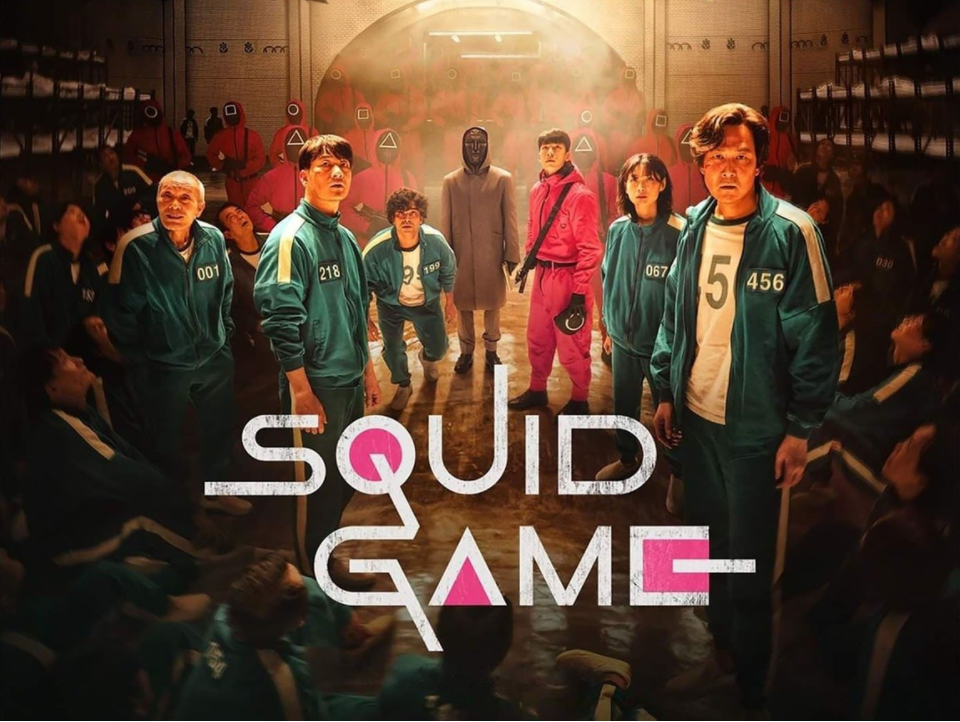How Parasite and Squid Game disprove the get-rich-quick myth

It has been an amazing last couple of years for East Asian pop culture and media. From movies like Crazy Rich Asians and Shang Chi to songs such as Midsummer Madness and Butter, it has been nothing but a nonstop rollercoaster ride, and I honestly don’t want to get off anytime soon. The world has come a long way from sidelining and stereotyping East Asians in the performing arts. Although we are still feeling the remnants of judgment from the COVID-19 pandemic, we can finally take a breath of fresh air as we bring new life into the entertainment industry.
There have been two works that have really stuck out to me: Parasite and Squid Game. Both have been hugely disruptive in their respective mediums, overturning any doubt that the visual medium has gone somewhat stale and repetitive, and there is no doubt in my mind that when the ripples ultimately settle for Squid Game, it will have been as impactful as Parasite was.
The questions I want to ask are: What made these two pieces click? Why all the buzz? We can go back to each story and revisit the theme. In Parasite, an Oscar-winning film written and directed by visionary Bong Joon-ho, we see a poor family struggling to survive as they slowly try to make a way for themselves. They claw themselves out of the subbasement they live in by taking whatever they can get their hands on from those who live above their means. Throughout the film, the rich live comfortably without many worries. In Squid Game, written and directed by persevering genius Hwang Dong-hyuk and Netflix’s biggest series debut ever, we see a similar paradigm. People sunken in debt try to rid themselves of their burden by entering into a deadly high-risk, high-reward competition run by the ultra-wealthy who enjoy shepherding the lives of the contestants.
The overlapping thread between the two works is watching the impoverished protagonists seek an “easy” way out of their harsh lives. Their escape plans get more and more complicated as they get closer and closer to their desires—which always seem to be within arm's reach but are wrenched out of sight as soon as they get close.
We enjoy art mediums if they make us cry, we enjoy them if they make us laugh, but above all, we enjoy them the most when we connect with them—when we empathize. But in what way can we empathize with Parasite and Squid Game?
With the likes of Jeff Bezos, Elon Musk, and Bill Gates dominating headlines with their record-breaking net worths, it seems as though our values are dwarfed in comparison. It’s a depressing situation, especially for those in debt. It’s almost as if we are in a mindless struggle in this game of life against each other when we shouldn’t be enemies at all. We oftentimes want an “easy” way out—a dream of retiring early, or of passive income.
Since the advent of business content creation, influencers no longer promote clothing, makeup, or their own brand, but rather “easy” ways to make big money. This type of content has grown alarmingly, and many content creators have been exposed or suspected for fraudulent content, such as influencer Tai Lopez and his real estate “classes.” After the short squeeze on GameStop that was backed by individual investors buying and holding against a hedge fund, we are once again seeing a boom in this kind of get-rich-quick content, much of which stems from the hype surrounding the stock market and passive income streams. Many of these passive income streams stray away from the traditional real estate approaches and lean into 21st-century techniques such as dropshipping—a retailing setup where people act as middlemen between consumers and manufacturers—or collaborative stock trading.
I do not want to discourage people from exploring new ways to make money. If one is concerned about their financial situation, learning a new skill or starting to explore investing can be a worthwhile activity. But I would be wary about the content that you watch and read online that says that you can make a very large sum of money in a very short amount of time, or schemes that promise cash flow without much of a workload. I always return to my steadfast mantra in these situations, “If something is too good to be true, it probably is.”
One thing that the audiences of both Parasite and Squid Game can agree on is that the protagonists wind up in an unfortunate situation, struggling against each other when the real issue lies on the other side. This shared empathy brings to light the dark truth of how the wealth of our society is out of balance. We have people struggling to pay their bills and put food on their table, while there are those who revel in their wealth, unafraid to spend any amount of money on anything.
Now may be the time when those on the less fortunate side need an easy way out, or at least some help to avoid living paycheck to paycheck. Perhaps those on the other end of the spectrum can live a little closer to Earth.

 Letter To The Editor
Letter To The Editor